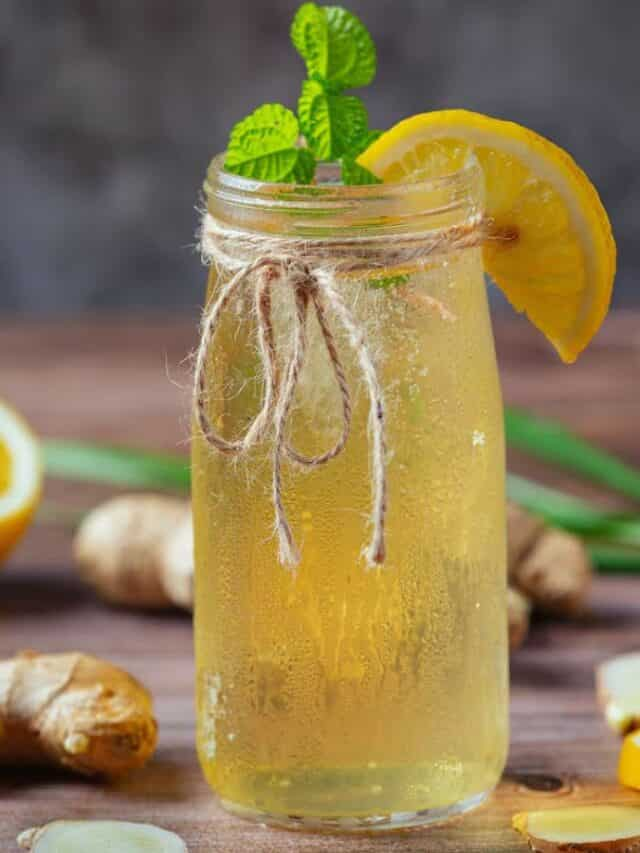Green tea with lemon is a refreshing hot or cold beverage. This combo may also be particularly beneficial for managing blood sugar levels and immune system function.
1. You May Lower Blood Sugar Levels
Drinking green tea for several weeks may help regulate blood sugar levels, thanks to antioxidants called catechins. These compounds can reduce inflammation and support gut health, which may help lower blood sugar in healthy people and those with metabolic syndrome (a series of factors that increase your risk of heart disease, stroke, and diabetes).
Research also found that drinking green tea helped lower fasting blood sugar levels, the amount of sugar in the blood after fasting for eight to 12 hours.
Lemon juice alone or added to green tea may reduce blood sugar spikes after meals by slowing how the body digests starches.
2. You May Prevent or Reverse Insulin Resistance
Drinking green tea with lemon may help prevent insulin resistance, when your body doesn’t respond to insulin (a hormone that regulates blood sugar levels) the way it should.
The antioxidants in green tea may reduce inflammation and lower oxidative stress, improving the body’s ability to utilize insulin efficiently and blocking the absorption of carbohydrates in the digestive process. In one study, people with type 2 diabetes who consumed green tea extract for 16 weeks showed reduced insulin resistance.
Squeezing a splash of lemon in your green tea can replace added sugars, reducing excessive sugar consumption that can lead to insulin resistance.
3. Your Immune Function May Improve
Regular consumption of green tea with lemon may help lower the risk of infections and combat illnesses due to the beverage’s antioxidants, such as polyphenols and vitamin C, which can boost the immune system. Some ways green tea with lemon improves immune function include:
- Epigallocatechin gallate (EGCG) is a polyphenol found in green tea. This antioxidant, which lessens inflammation, protects against certain immune system disorders.
- In one lab study, EGCG altered protein activity that may prevent the flu virus from replicating. However, additional human research is needed.
- The selenium and amino acid L-theanine content may support white blood cells in combating germs.
- Vitamin C, found in lemons, reduces inflammation and enhances immune cell function, which can potentially help treat and prevent infections.
4. You May Be More Protected Against Infections
Although more human research is needed, initial studies suggest that green tea may protect against certain viral infections, such as:
- Influenza
- Adenovirus
- Hepatitis
One study found that drinking catechin-rich beverages, like green tea, daily over 12 weeks lowered the risk of upper respiratory tract infections by 50%, compared to people who didn’t consume catechins.
Lemon juice also has antimicrobial properties, though more studies are required to analyze how and whether this could apply more broadly to specific infections.
How to Incorporate Green Tea with Lemon Into Your Diet
Some tips that experts recommend for incorporating more green tea with lemon into your diet include:
- Be mindful of the caffeine in green tea, and consider switching to a decaf version if necessary. However, removing caffeine may reduce some of its antioxidant content.
- Use a generous splash of lemon in your green tea for a slightly tangy sweetener without the excessive added sugar that can lead to health complications.
- Pair green tea and lemon with a fiber-rich snack like whole grains or nuts, as this can promote an even better blood sugar response.
- Be aware of the citric acid in lemons, which can trigger heartburn and potentially erode tooth enamel (the hard outer layer of teeth) over time.
While green tea with lemon is generally safe for most healthy adults, it may not be best for some people sensitive to caffeine or taking certain medications that can interact with green tea.
Source link

